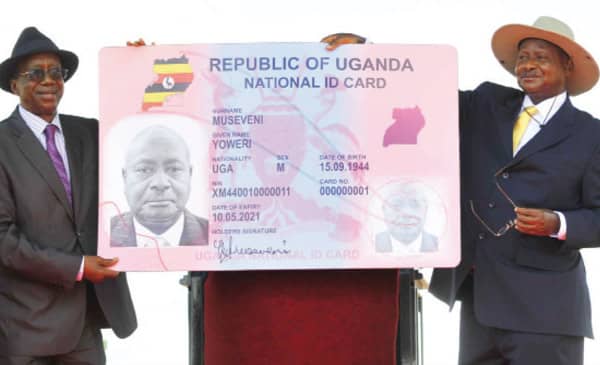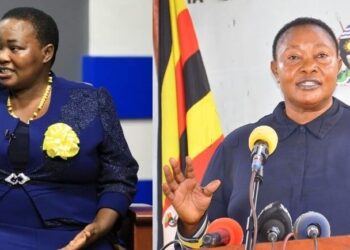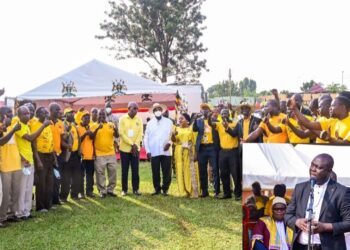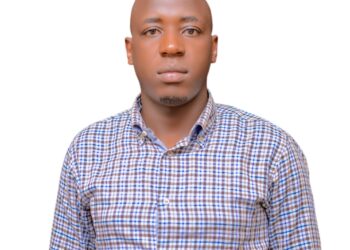As the 2026 general elections approach, ensuring that every eligible Ugandan possesses a valid National Identification (ID) is a matter of national urgency. Across the country, from urban centers to rural districts like Otuke, the Ministry of Internal Affairs, together with the National Identification and Registration Authority (NIRA), has embarked on a critical 53-day registration mop-up exercise, which will conclude on November 23, 2024. This initiative, to be supported by the offices of Resident District Commissioners (RDCs) and Resident City Commissioners (RCCs), places a significant responsibility on local leaders to spearhead efforts in mobilizing and registering citizens, ensuring that everyone is fully prepared to participate in the upcoming elections.
The National ID is far more than a simple identification card. It is the gateway to full citizenship, essential not just for voting but for accessing a wide range of government services. In the context of the upcoming elections, it guarantees that every eligible Ugandan can exercise their right to vote. Without a National ID, millions of citizens especially those in rural areas or marginalized communities risk being excluded from the electoral process, thus weakening the foundations of our democracy. The government estimates that over three million Ugandans aged 17 and above remain unregistered, with many concentrated in rural areas where access to registration centers is limited. This is a challenge we must overcome to ensure an inclusive and fair electoral process in 2026.
The National ID’s importance, however, extends far beyond the elections. One of the most pressing examples of this is the Parish Development Model (PDM), a flagship government initiative aimed at eradicating poverty and improving livelihoods, especially in rural areas. The PDM is designed to empower individuals at the grassroots level by providing access to financial resources, training, and government programs aimed at economic transformation. However, many eligible citizens across Uganda have been unable to fully benefit from the PDM because they lack a National ID. This is not only a missed opportunity for those individuals but also a barrier to achieving the full potential of PDM’s objectives.
The failure to register for a National ID locks people out of life-changing opportunities. It’s a stark reminder that this document is a key that unlocks participation in Uganda’s socioeconomic transformation. Whether it is accessing healthcare, social protection programs, or financial services through initiatives like the PDM, the National ID is critical. In Otuke district and across Uganda, ensuring that every citizen is registered must become a collective national effort, not just for elections but for full participation in the nation’s growth and development.
The success of this registration exercise relies heavily on the mobilization efforts of local government leaders, community influencers, and civil society. The RDCs and RCCs, have a vital role to play in leading this effort. We must educate our people that obtaining a National ID is not just about being able to vote in the 2026 elections; it is about securing their access to government programs that can improve their livelihoods. We cannot allow a lack of documentation to keep people from receiving the assistance they need to thrive, whether through PDM or other government initiatives.
Mobilizing all citizens to register is not just a challenge faced by Otuke District, but one faced by Uganda at large. The collaboration of government agencies, community leaders, and NIRA is crucial to ensure that no citizen is left behind. Appearing on local radio programs, conducting community outreach, and making registration services accessible, especially in remote areas, will be critical to the success of this campaign. Local leaders must prioritize this initiative, as the long-term benefits for our people and the nation are immeasurable.
For Uganda, the National ID is a powerful tool to ensure accountability, transparency, and fairness in governance. It helps prevent electoral fraud, protects against voter impersonation, and ensures that government resources reach the intended recipients. By registering every eligible citizen, we strengthen the transparency and credibility of our electoral process while also opening the door to a more inclusive and empowered society.
In conclusion, as Uganda moves toward the 2026 general elections, President Museveni’s leadership continues to emphasize the need for sustainable and inclusive governance. The National ID registration exercise is not just about preparing for the vote but ensuring that every Ugandan can access essential services and participate in transformative government programs like the Parish Development Model (PDM). His Excellency has made it clear that no one should be left behind on Uganda’s journey toward development.
With the registration deadline set for November 23, 2024, it is crucial that every eligible Ugandan is registered and ready to contribute fully to shaping the future of our nation. Now is the time to act.
The writer is an Assistant RDC, Otuke District and NRM Party Mobiliser.
+256787806216
umitala@ldc.ac.ug
Do you have a story in your community or an opinion to share with us: Email us at editorial@watchdoguganda.com













